Women of Rural Pakistan-Sindh
Women of Rural Pakistan-Sindh - Introduction: A Journey into Pakistan’s Rural Heart
Women of Rural Pakistan-Sindh - Across the rural stretches of Pakistan, far from the fast pace of cities, far from the hustle of cities and the glare of mainstream media, women lead lives of immense responsibility, resilience, and quiet strength. They wake before dawn, manage households, contribute to agriculture and fields, raise children, and uphold cultural values passed down for generations. Yet, their stories are seldom told.
At MizLink-Pakistan, we believe in amplifying these voices. This article begins a new series highlighting the lived realities and insights of rural women across Pakistan — and we start in the culturally rich province of Sindh, with the inspiring story of Fatima — a woman whose life offers a lens into the deeper truth of rural womanhood.
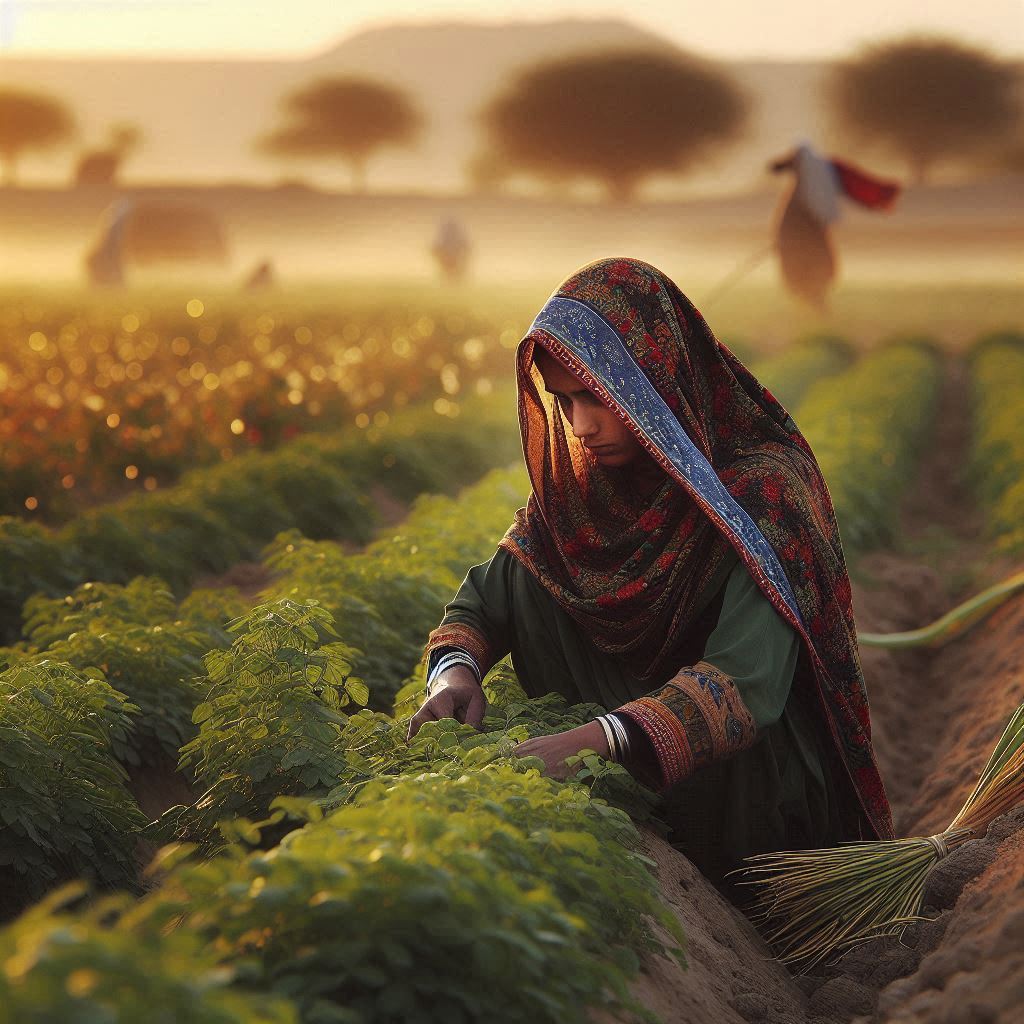 Rural woman of Sindh-Working the Fields
Rural woman of Sindh-Working the FieldsWomen of Rural Pakistan-Sindh
Challenges Faced by Rural Women in Pakistan
Rural women in Pakistan face intersecting challenges that go far beyond the physical labor of their daily lives. These challenges are rooted in systemic inequality, lack of infrastructure, and traditional norms that often limit their access to resources and opportunities.
Rural women like Fatima face a complex set of challenges that impact nearly every aspect of their lives:
1. Access to Basic Resources
Clean water, electricity, and healthcare remain out of reach for many rural families. Women often walk miles to fetch water, sometimes with children in tow, balancing this with their many responsibilities at home and on the farm.
They also have to make difficult decisions when medical emergencies arise due to distant or understaffed clinics.
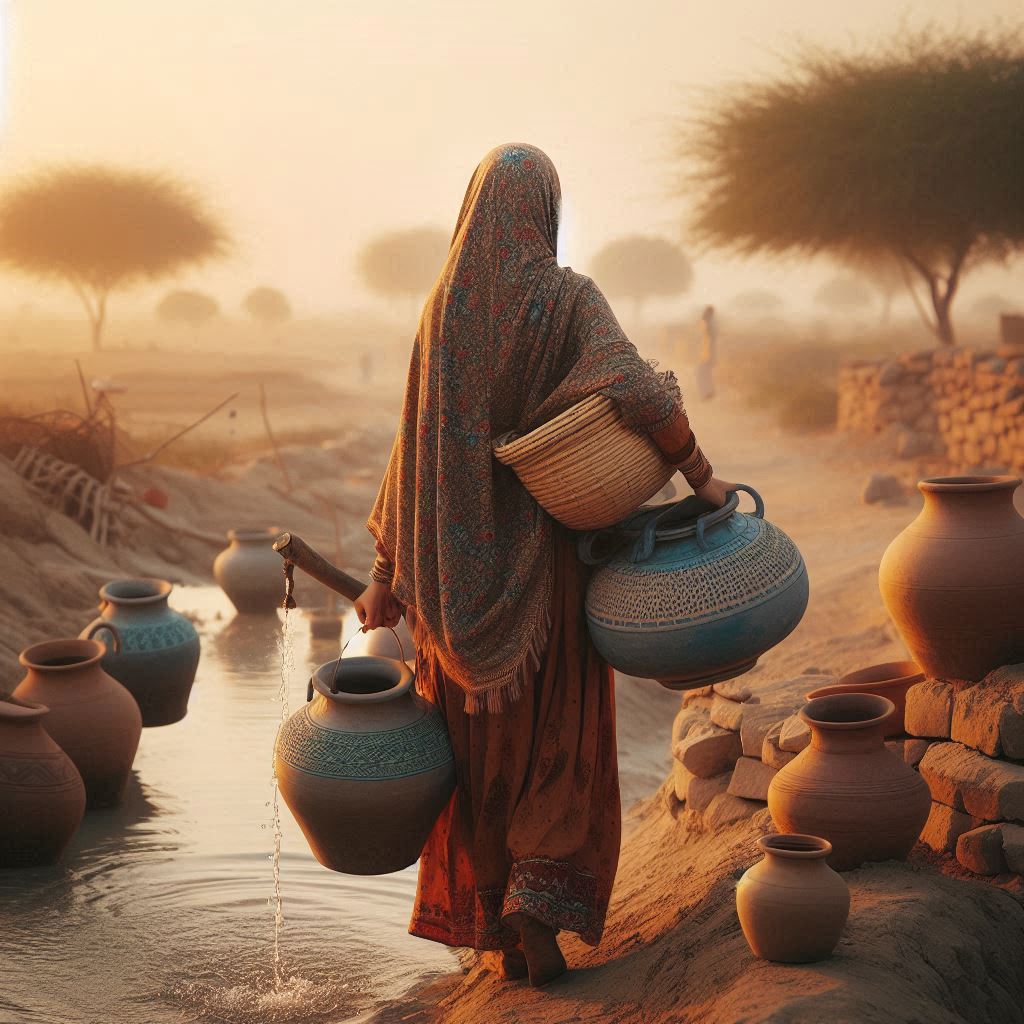 Woman of Rural Pakistan-Sindh-Carrying Water in Pots
Woman of Rural Pakistan-Sindh-Carrying Water in Pots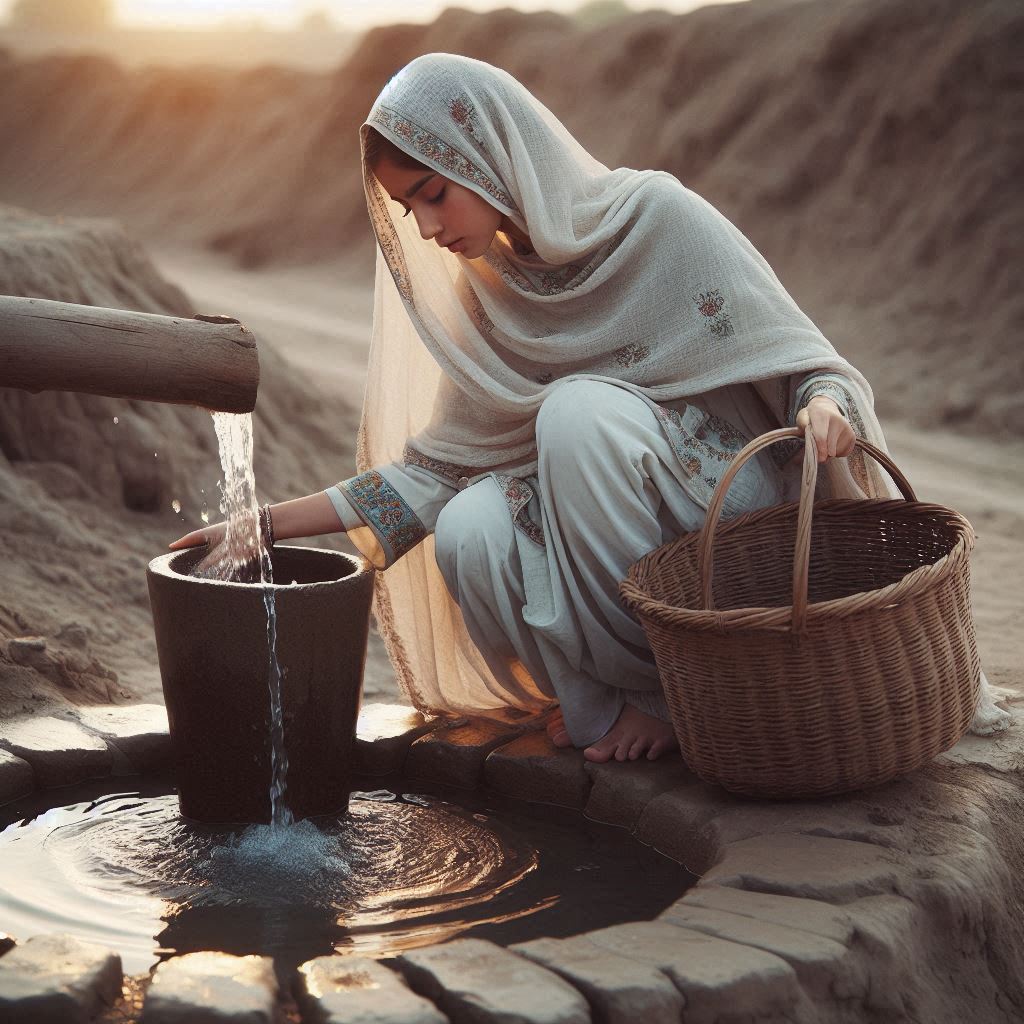 Women of Rural Pakistan-Sindh-Collecting Water from the Tube Well
Women of Rural Pakistan-Sindh-Collecting Water from the Tube Well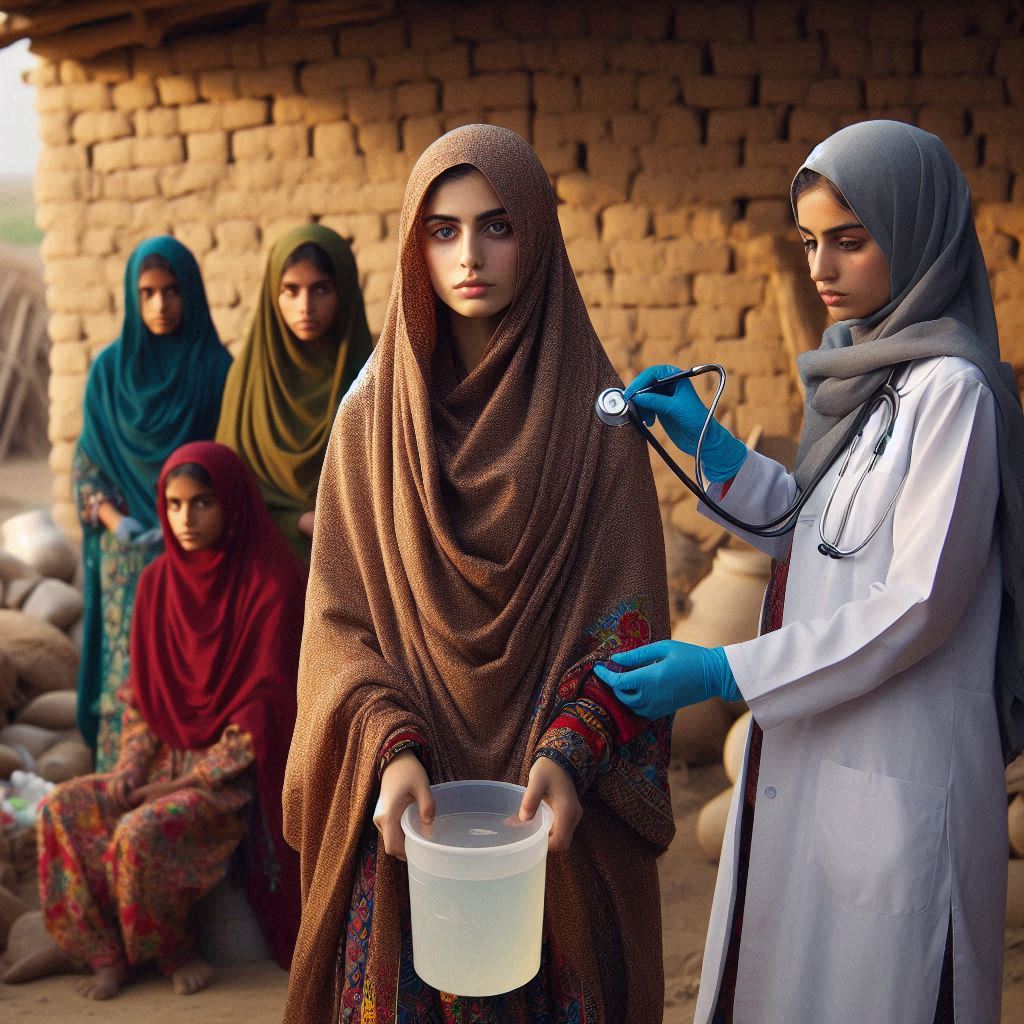 Women of Rural Pakistan-Sindh-Healthcare Facilities
Women of Rural Pakistan-Sindh-Healthcare Facilities2. Educational Barriers
Many girls in rural communities are still denied access to quality education. This gap limits their ability to grow economically and socially, and restricts the knowledge they could use to improve their families.
Girls' education is still a dream in many rural areas. Early marriage, cultural restrictions, and poverty prevent thousands from completing primary school. This loss of learning not only impacts their futures but perpetuates cycles of dependence and invisibility.
Nevertheless , realizing the potential of education, there have been initiatives by local communities that are providing basic education with their own resources, to all ages of student, in addition to public sector institutions.
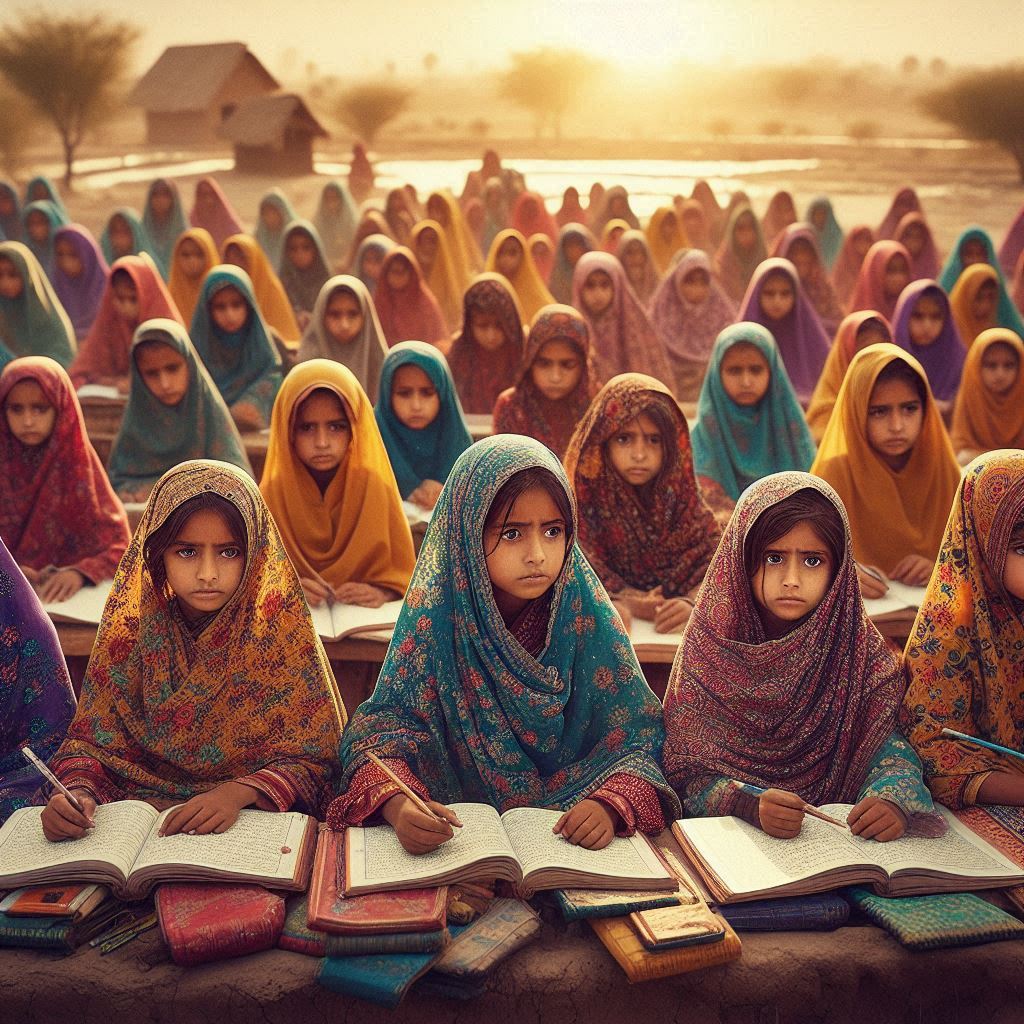 Women of Rural Pakistan-Sindh-Primary School Students
Women of Rural Pakistan-Sindh-Primary School Students Women of Rural Pakistan-Sindh-Secondary School Student
Women of Rural Pakistan-Sindh-Secondary School Student Women of Rural Pakistan-Sindh-College Student
Women of Rural Pakistan-Sindh-College Student3. Lack of Social Recognition
Despite their immense contributions to agriculture, home management, and community well-being, rural women rarely receive formal recognition. Their labor remains uncounted in economic terms, and their voices are too often excluded from decision-making processes.
Yet, they carry on — adapting, solving, and building from the ground up.
Yet, against all odds, women like Fatima continue to rise — redefining strength in their own terms.
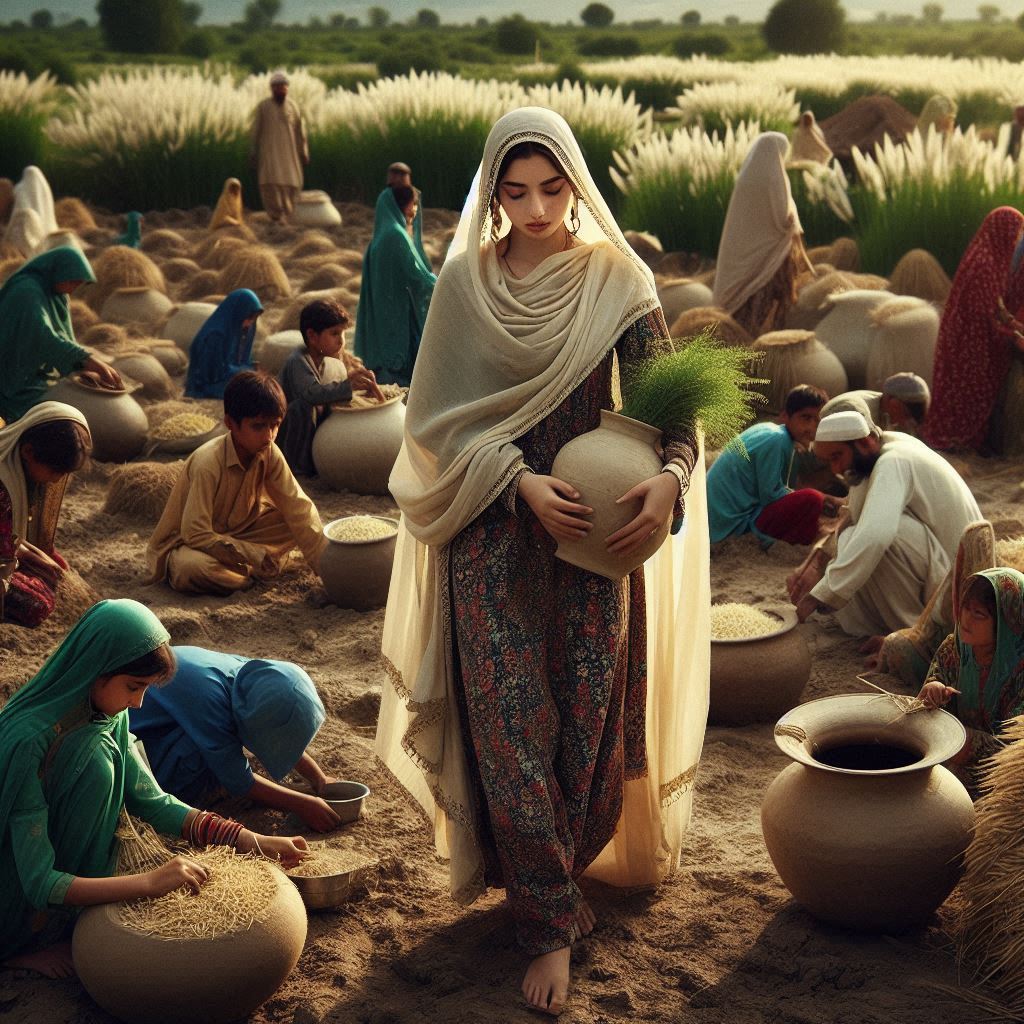 Women of Rural Pakistan-Sindh-Working in the Fields
Women of Rural Pakistan-Sindh-Working in the Fields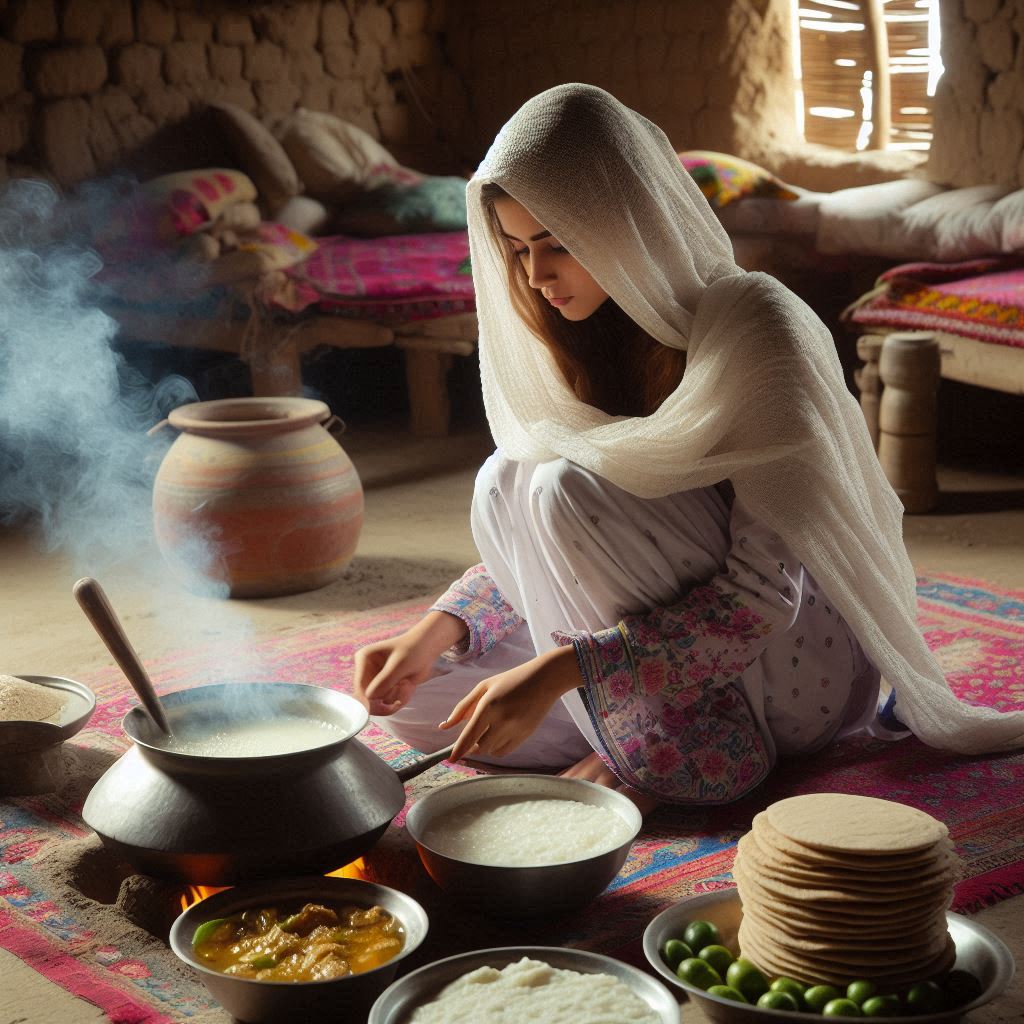 Women of Rural Pakistan-Sindh-Household activities
Women of Rural Pakistan-Sindh-Household activities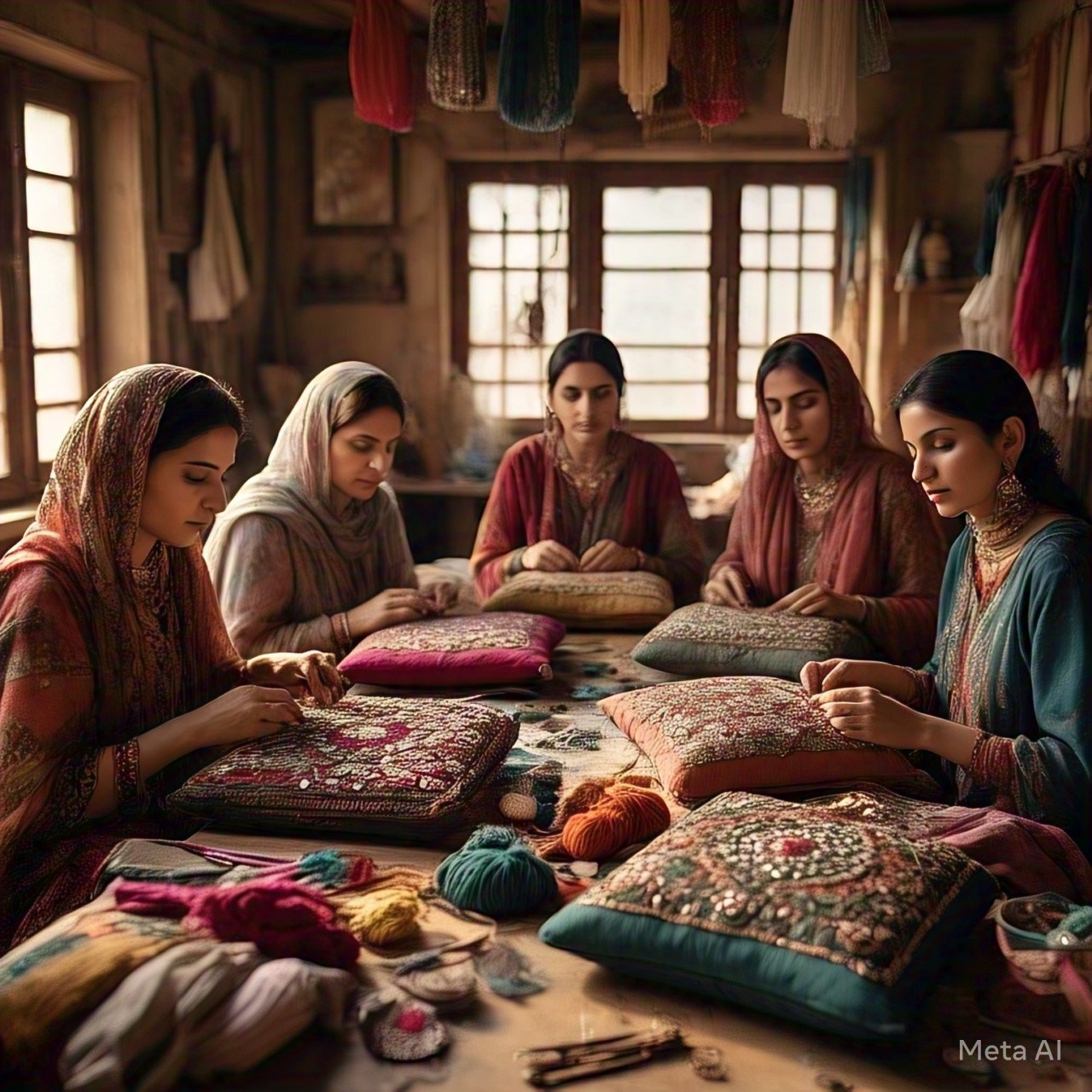 Women of Rural Pakistan-Sindh-Economic activities
Women of Rural Pakistan-Sindh-Economic activitiesWomen of Rural Pakistan-Sindh
The Backbone of Rural Life: Who Is Fatima?
Fatima is not a celebrity, activist, or politician. She is a mother, wife, and farmer living in a small village in Sindh. But within her simple daily routine lies a story of profound strength, quiet leadership, and remarkable resilience.
She wakes before dawn, not for leisure, but to prepare her home for the day, organize her family, and manage farming duties. Her hands, calloused from years of tending fields, carry wisdom that textbooks do not teach. Her voice, soft yet firm, reflects both compassion and determination.
Fatima’s life may seem ordinary at a glance, but it embodies the extraordinary strength of countless women across rural Pakistan.
Fatima is also an active member of her small village in Sindh. Her story reflects not just personal endurance but the collective spirit of many women who form the foundation of rural life in Pakistan.
She doesn’t hold a public title, but her role is essential — from tending crops to nurturing her family, celebrating traditions, and adapting in times of hardship. Her life speaks of strength woven into daily acts of love and labor.
A Day in Fatima’s Life
Fatima’s day starts early — sometimes before the sky even begins to lighten. She moves quietly through her morning routine, preparing food, boiling water for tea, and readying her children for the day. But her work doesn't stop at the household.
Alongside her husband, Fatima manages a small piece of farmland. They grow staple crops like wheat and cotton, relying on seasonal rains and their own hard labor. Fatima also oversees the storage and processing of grains, often managing household accounts and bartering at the local market.
Back home, she provides care for her elderly parents, tends a small vegetable patch, and participates in community gatherings and religious events. Her calendar follows not just the seasons, but the cultural rhythms of Sindhi life — from festivals to harvest celebrations.
In the midst of all this, she finds time to laugh with her children, sing traditional folk songs, and keep alive the customs passed down through generations.
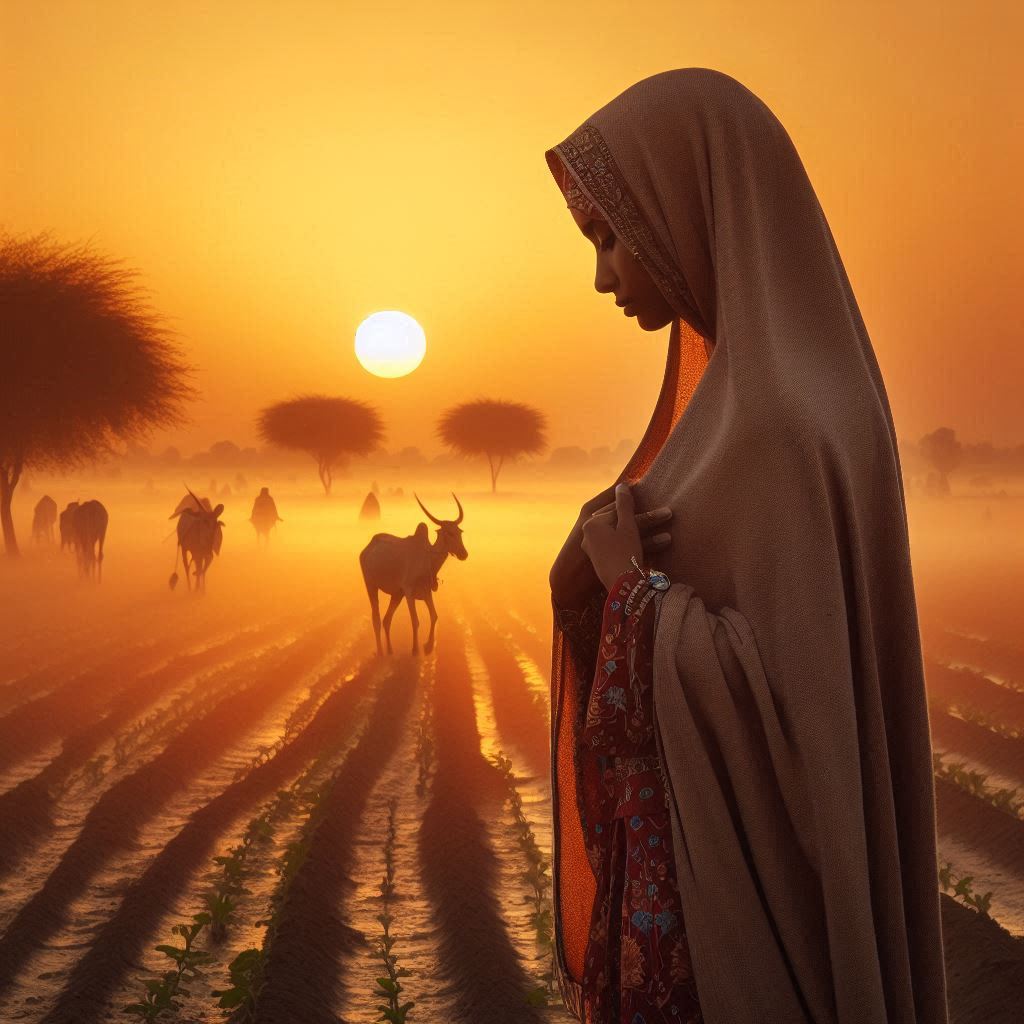 Women of Rural Pakistan-Sindh-Up before Sunrise
Women of Rural Pakistan-Sindh-Up before Sunrise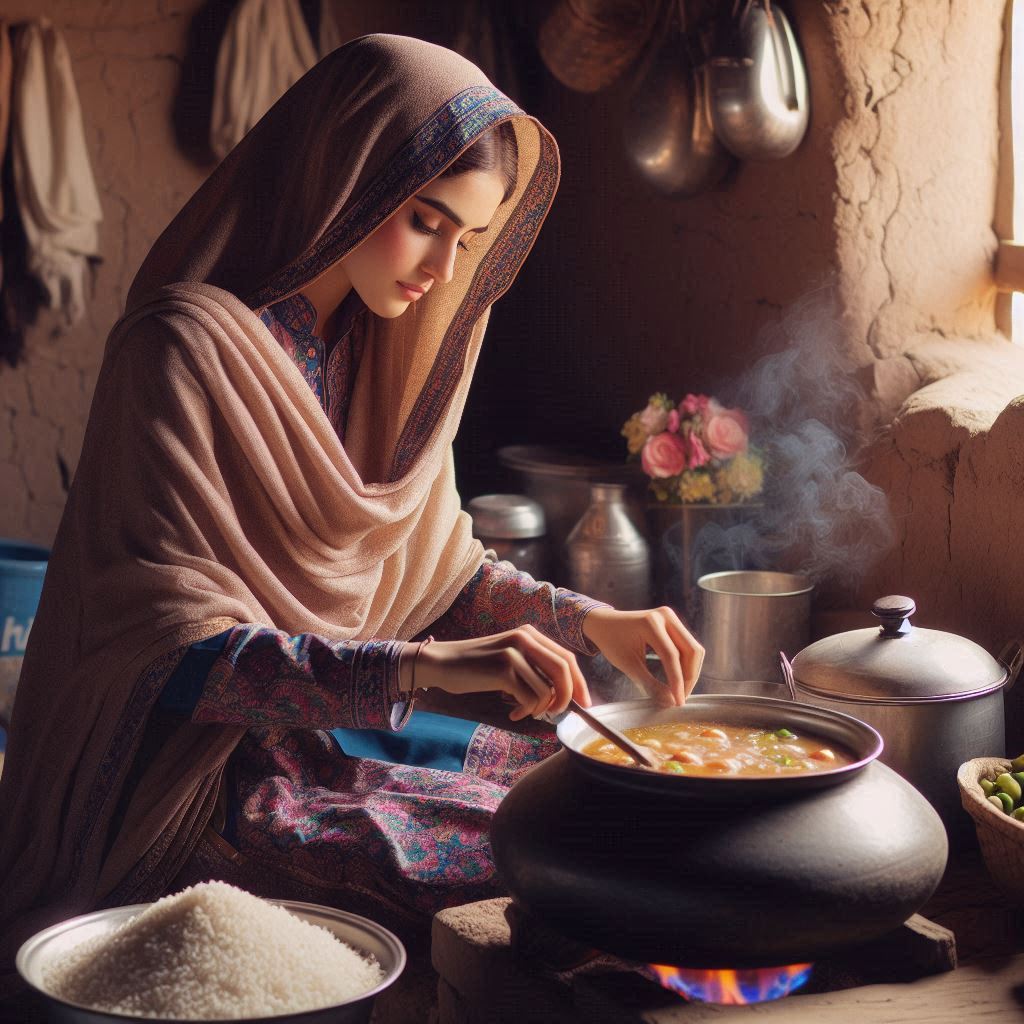 Women of Rural Pakistan-Sindh-Preparing breakfast for the family
Women of Rural Pakistan-Sindh-Preparing breakfast for the family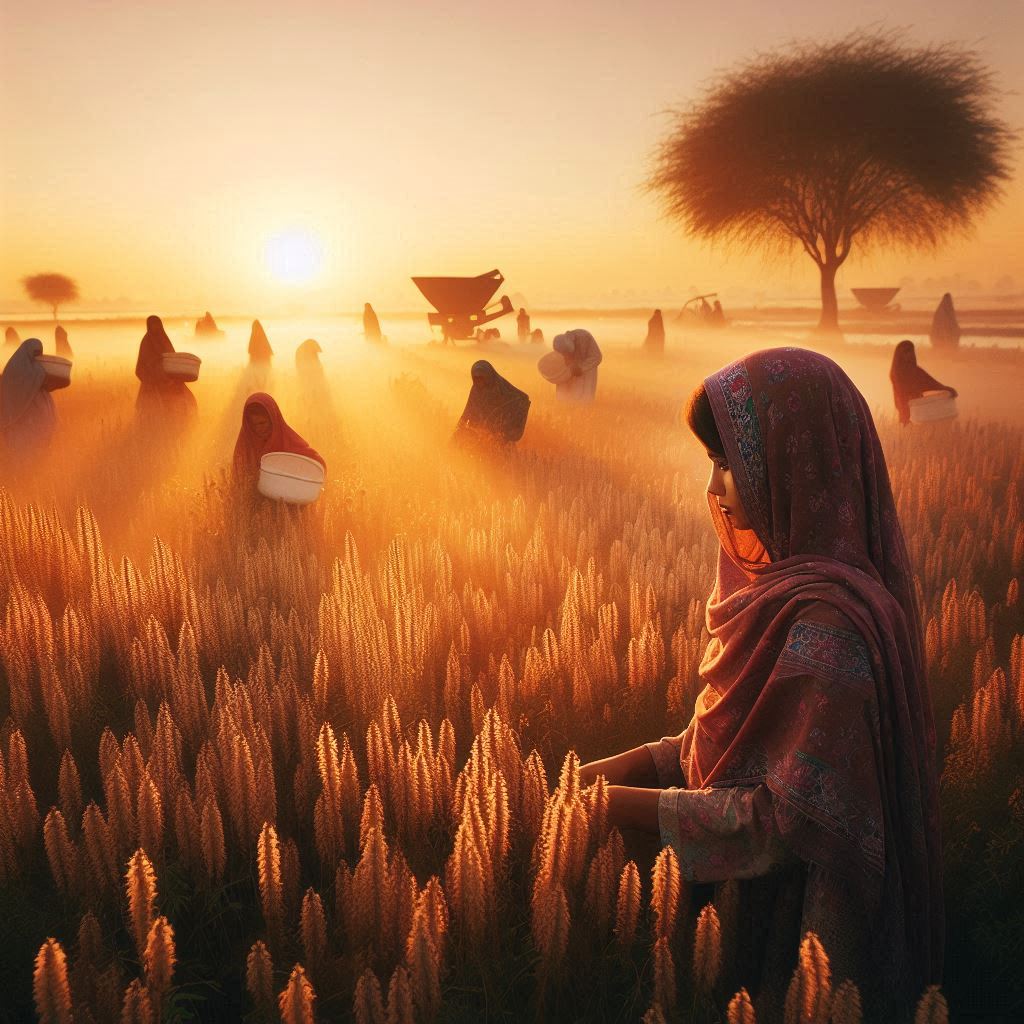 Women of Rural Pakistan-Sindh-Working in the fields at sunrise
Women of Rural Pakistan-Sindh-Working in the fields at sunriseWhen Crisis Struck: A Lesson in Resilience
A few years ago, Fatima’s village was hit by an extended drought. The crops failed. The land turned dry and cracked. For a family dependent on agriculture, this was more than a financial crisis — it was a threat to their survival.
But Fatima refused to surrender. She experimented with new irrigation techniques, consulted neighbors and local NGOs.
She even started a small side business selling handmade Sindhi ralli, embroidery and household crafts. It wasn't easy, but her initiative brought in just enough income to get through the season.
More importantly, it gave her a renewed sense of agency. It showed her family — and her community — that solutions could come from within, and that a woman’s knowledge was not secondary, but essential.
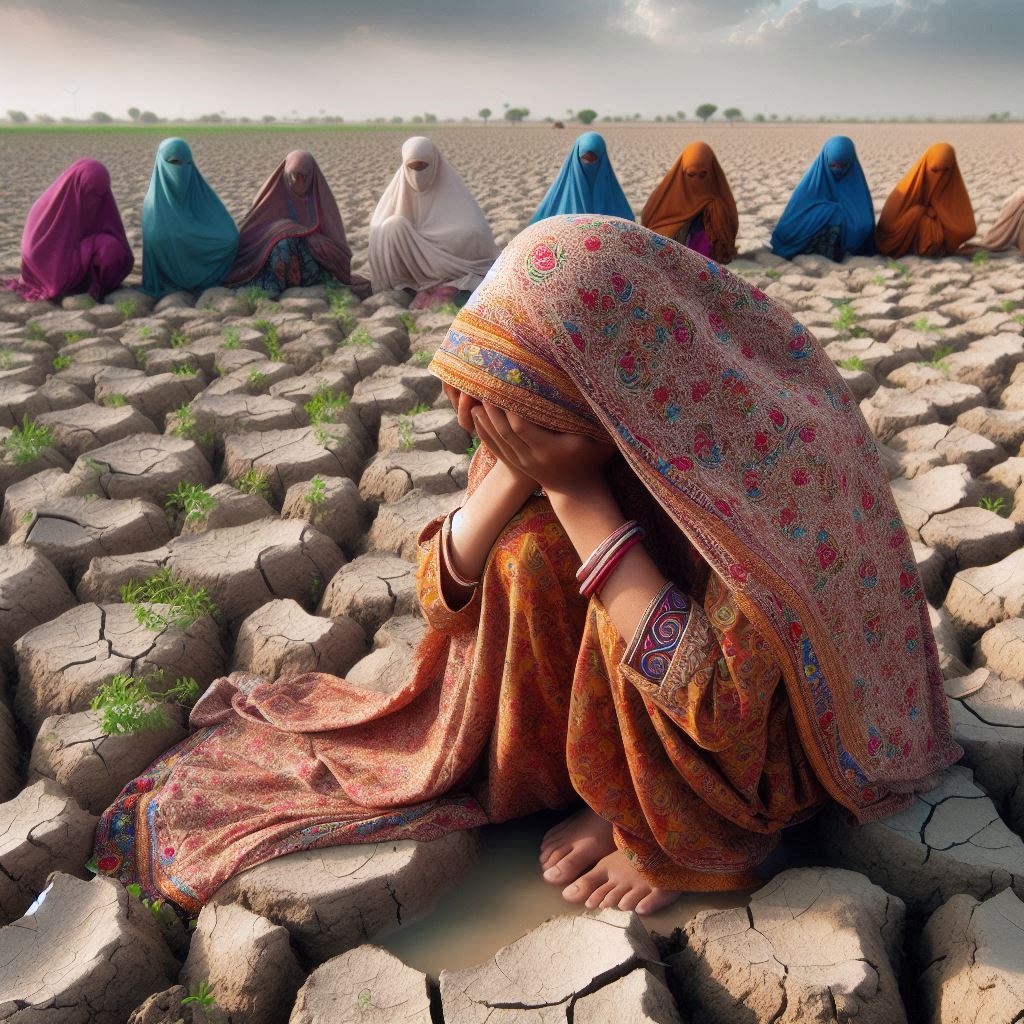 Women of Rural Pakistan-Sindh-When faced with the Drought
Women of Rural Pakistan-Sindh-When faced with the Drought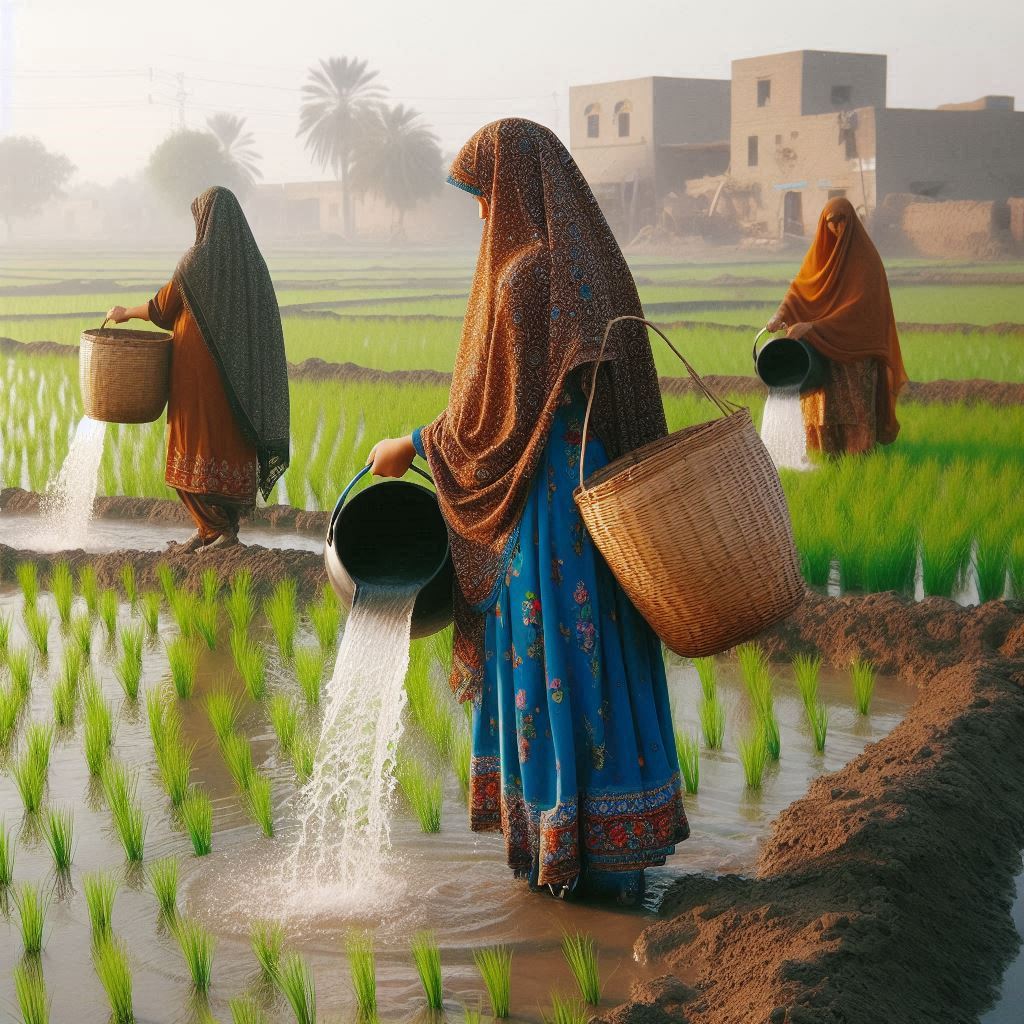 Women of Rural Pakistan-Sindh-Resiliently finding ways for irrigation
Women of Rural Pakistan-Sindh-Resiliently finding ways for irrigation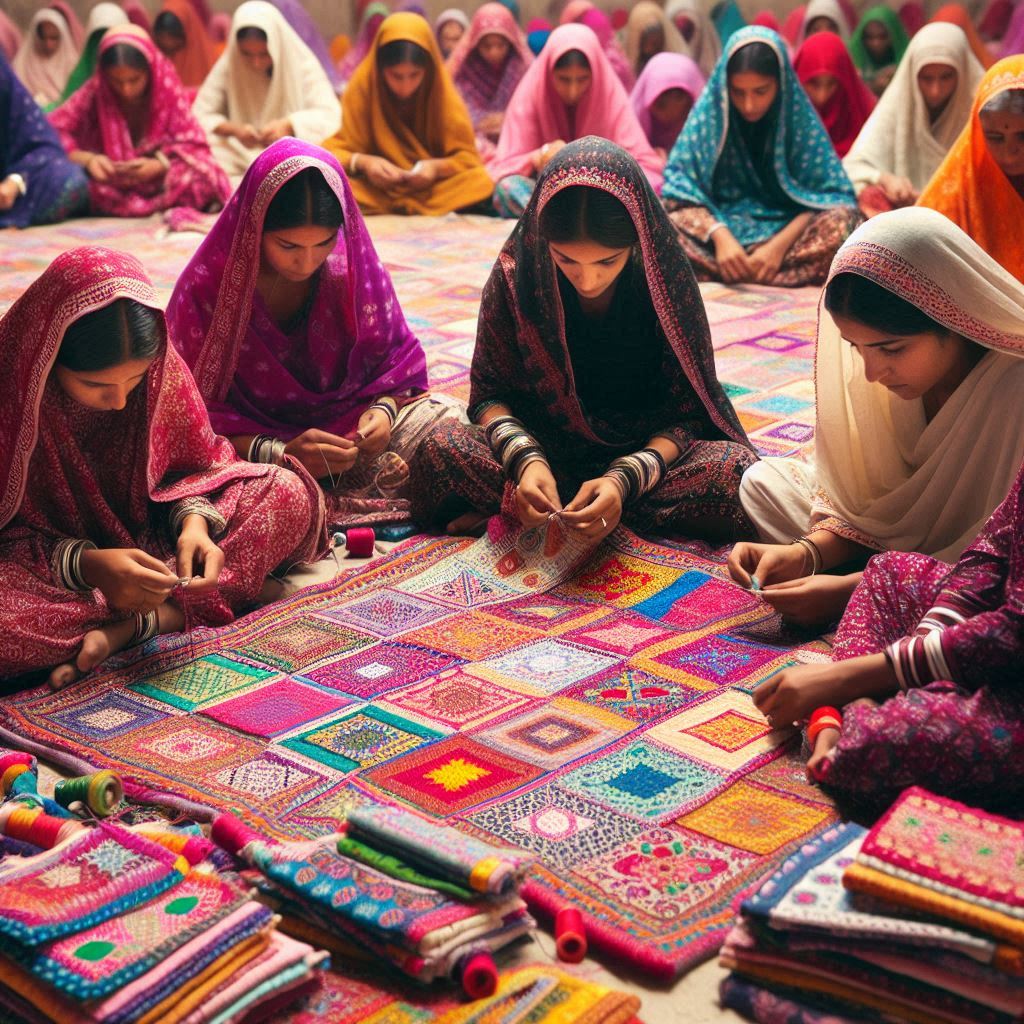 Women of Rural Pakistan-Sindh-Handcraft ralli-making
Women of Rural Pakistan-Sindh-Handcraft ralli-makingWhy Her Story Matters
Fatima’s story matters because it brings to light the dignity, endurance, and brilliance of rural women — lives too often simplified or ignored in national conversations. She reminds us that development is not just about building roads or schools; it's about listening to those who already build lives from very little, every single day.
Her resilience in times of crisis, her commitment to her family, and her deep connection to her land reflect the reality of countless rural women across Pakistan. They may not have platforms or policy influence, but their impact is deep and lasting.
These women are not passive recipients of aid — they are active agents of change within their communities. Fatima’s life encourages us to shift the narrative: from seeing rural women as marginalized, to recognizing them as central to Pakistan’s progress.
By sharing her story, we hope to inspire appreciation, policy awareness, and ultimately — action.
Conclusion: Honoring Rural Women's Contributions
Fatima’s journey shows that strength doesn’t always come with noise. Sometimes, it comes quietly — in early mornings, in tough decisions, in steady hands that build both homes and futures.
At MizLink-Pakistan, we are committed to sharing these stories — not just to inspire, but to inform and ignite change.
What’s Next?
This is just the beginning. We’ll continue this series by exploring the lives of women in other regions of Pakistan, starting with Sindh here, we move next to Punjab. Each profile will uncover new insights, different challenges, and powerful expressions of womanhood across the country’s diverse rural landscape.
Have a story to share or reflections on Fatima’s journey? We’d love to hear from you.
- Home
- Women of Rural Pakistan-Sindh


